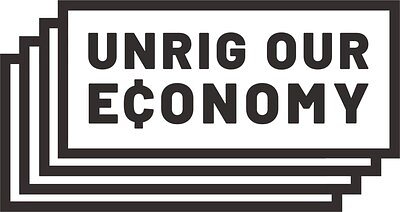
SNAP Cuts & Billionaire Tax Breaks: Activists Link Policy Choices to Food Bank Demand
As SNAP benefits shrink, a new campaign highlights the link between tax breaks for the wealthy and growing food insecurity. Activists are donating meals while raising questions about policy priorities.
SNAP Cuts & Billionaire Tax Breaks: Activists Link Policy Choices to Food Bank Demand
By Michael Bennett
WASHINGTON D.C. – A new campaign launched by the activist group Unrig Our Economy is drawing attention to the connection between recent cuts to the Supplemental Nutrition Assistance Program (SNAP) and tax breaks benefiting wealthy individuals and corporations. The campaign, dubbed “Billionaires Eat First,” is simultaneously donating over 200,000 meals to food banks in eight cities and publicly criticizing the policy choices that have led to dwindling food assistance for millions of Americans.
While the donations offer immediate relief to strained food bank resources, the core message of the campaign is that the reduction in SNAP benefits isn’t a budgetary necessity, but a deliberate policy choice. “The idea is simple,” explains a representative of Unrig Our Economy. “We’re showing a direct line between tax breaks for the ultra-wealthy and the increasing number of people struggling to put food on the table.”
The Policy Shift: Cuts Amidst Economic Strain
The recent changes to SNAP are largely contained within the newly enacted “One Big Beautiful Bill Act” (P.L. 119-21), signed into law by President Donald Trump on July 4th. The legislation expands work requirements for SNAP recipients, raising the age limit for able-bodied adults without dependents and limiting state waivers. It also implements stricter eligibility criteria, impacting access to benefits for millions.
These cuts come at a particularly vulnerable time. The end of enhanced pandemic-era SNAP benefits in February 2023 and the continuing high cost of living have already increased demand for food assistance. According to the USDA, the current reductions in SNAP benefits are projected to significantly shrink access to food assistance, disproportionately affecting children, older adults, people with disabilities, and working families.
“We’re seeing a perfect storm,” says a food bank director in Montgomery, Alabama, who requested anonymity. “The pandemic benefits expiring, inflation, and now these cuts to SNAP… it's putting an enormous strain on our resources. We’re serving more people than ever before, and donations aren't keeping pace.”
A Tangible Connection: Tax Breaks & Food Bank Demand
The “Billionaires Eat First” campaign argues that these SNAP cuts aren’t driven by economic necessity, but rather by a political commitment to extending tax breaks for corporations and wealthy individuals. The legislation was largely championed by House Republicans and aligns with the extension of provisions from the 2017 Tax Cuts and Jobs Act.
“It’s a matter of priorities,” a campaign spokesperson explained. “Instead of investing in programs that support working families, Congress is choosing to prioritize tax cuts for those at the very top.”
While the direct budgetary impact of the tax cuts versus the SNAP cuts is complex, the campaign frames it as a clear trade-off. It highlights the significant tax savings enjoyed by corporations and high-income earners alongside the growing number of people facing food insecurity.
Government Defends Policy Shift, Critics Raise Concerns
Defenders of the policy changes argue that they are necessary to rein in program costs and prevent fraud and abuse. House Speaker Mike Johnson publicly stated that the legislation was designed to address “fraud, waste and abuse,” though this claim has been disputed by fact-checkers.
However, critics argue that the cuts are short-sighted and will ultimately harm vulnerable populations. They point to the potential for increased poverty, health problems, and economic instability as a result of reduced access to food assistance.
A senior policy analyst with a non-profit advocating for food security stated, “These cuts aren't about saving money; they're about making a political statement. They’ll have devastating consequences for millions of Americans.”
The Shutdown & SNAP Funding Uncertainty
The recent government shutdown further exacerbated concerns about the stability of SNAP funding. During the shutdown, the USDA initially indicated it would only partially fund November SNAP benefits, leading to legal challenges and court orders compelling the agency to release full funding.
The uncertainty surrounding funding, even temporarily, sent ripples of anxiety through food banks and anti-hunger organizations. One food bank director noted, “The shutdown was a wake-up call. It showed how fragile the system is, and how easily it can be disrupted.”
Beyond Donations: A Call to Action
The “Billionaires Eat First” campaign isn't simply about providing meals; it’s about raising awareness and mobilizing public pressure for policy change. Unrig Our Economy is urging citizens to contact their elected officials and demand that they prioritize investments in programs that support working families.
“We’re trying to create a moment where people connect the dots,” says a campaign spokesperson. “We want them to understand that these cuts to SNAP aren’t inevitable. They’re a choice, and we can choose a different path.”
The campaign’s strategy appears to be resonating with some. Social media is abuzz with the hashtag #BillionairesEatFirst, and several progressive organizations have expressed support for the initiative.
Whether the campaign will be successful in influencing policy remains to be seen. However, it’s clear that the debate over SNAP funding and the prioritization of economic resources is far from over. As food bank demand continues to rise, the link between policy choices and food security is becoming increasingly difficult to ignore. The donations, while appreciated, are seen as a temporary bandage on a deeper systemic wound.
“We need long-term solutions,” says the anonymous food bank director. “Not just meals, but policies that ensure everyone has access to affordable, nutritious food.”
